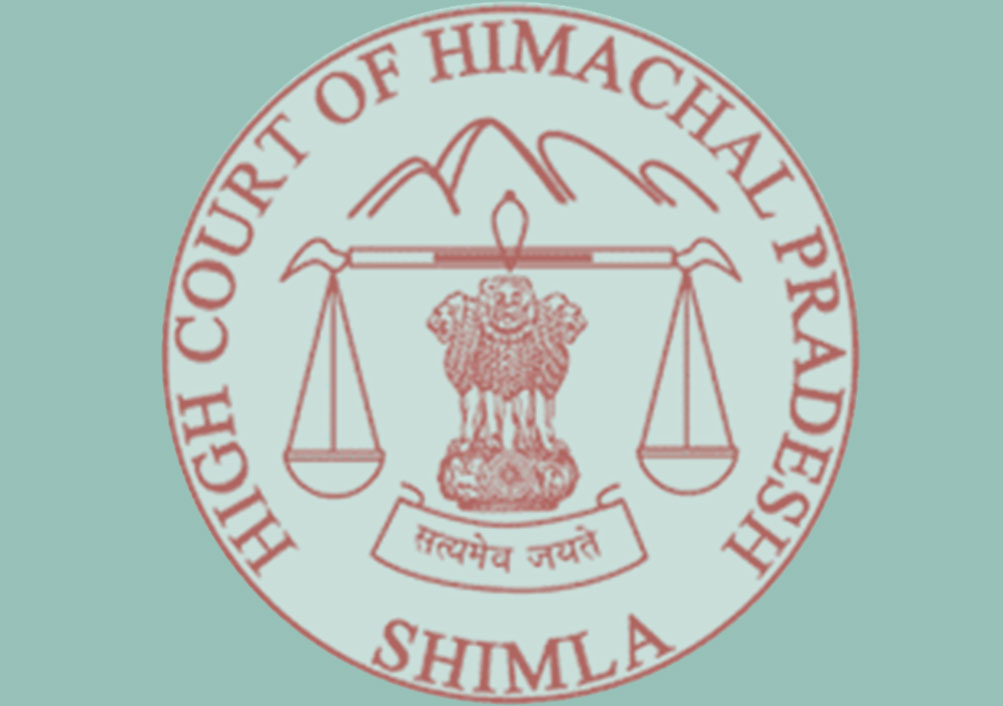Every expecting female deserves dignity, says Himachal HC while granting pre-arrest bail to pregnant woman in NDPS case

Read order: Monika vs. State of H.P
LE Staff
Shimla, July 26, 2021: The Himachal Pradesh High Court has granted anticipatory bail to a pregnant woman who was co-accused in a case registered under the NDPS Act, saying every expecting female deserves dignity during motherhood.
Taking into consideration the adverse effects that may ensue on the pregnant woman’s mental and physical health if she is jailed during pregnancy, Justice Anoop Chitkara said, “Heavens will not fall if incarceration is postponed”.
The bench observed that “There should be no restraints throughout pregnancy, no restraints during labor and delivery, and no restraints at least for a year after giving birth. Every expecting female deserves dignity during motherhood.”
The High Court observed that the applicant has satisfied the rigors of Section 37 of the Narcotic Drugs and Psychotropic Substances (NDPS) Act and has made a case for release on bail during the trial in the facts and circumstances peculiar to this case.
“Courts must restore the due and sacrosanct freedom of women in motherhood pro tanto. Even when the offences are highly grave and accusations very severe, they still deserve temporary bail or suspension of sentence, extending to a year after delivery. Further, those who stand convicted and their appeals closed also deserve similar relief, in whatever camouflage it may come,” opined Justice Chitkara.
The Court also asked as to what difference it will make to the State and society by postponing incarceration and also asked about the urgency to execute the sentence.
Going by the background of the case, the application for pre-arrest bail was moved by one Monika, who had apprehended her arrest in an NDPS case after her husband and mother-in-law were arrested by the police. It was alleged that she had conspired with her husband in drug trade after a commercial quantity of heroin was recovered from her husband’s house.
Denying the allegations, the petitioner however claimed that she came to know about the NDPS case only after her mother-in-law was arrested.
The State opposed the grant of bail contending the accusation to be a heinous offence and that the petitioner had not satisfied the twin conditions laid down u/s 37 of the NDPS Act involving commercial quantity of drugs.
The High Court, however, disagreed and found that the conditions u/s 37 of the NDPS Act have been satisfied in this case, thereby entitling the woman accused to bail.
While agreeing that the husband of the petitioner has a checkered criminal history and being his wife, she might be aware of his illegal activities, Justice Chitkara stated that such facts are not enough to prove accusation against the petitioner, when she has no criminal history of her own.
The High Court further added that mere confessional statement of mother-in-law, who is a co-accused, is legally insufficient to deny bail to the other accused in the absence of any other incriminating evidence or allegations.
The Court further expressed concern over the ill effects that a prison environment could have on a child born in jail, and stated that taking birth in jail could possibly be such a trauma to the child that social hatred might follow, potentially creating an everlasting impact on the mind whenever questioned about birth. “Restraints and confined spaces might cause mental stress to a pregnant woman. Giving birth in jail might cause her tremendous trauma,” said the High Court.
The High Court therefore proceeded to grant anticipatory bail to the Petitioner, subject to some conditions and also clarified that if any of those conditions were violated by the petitioner, it shall always be permissible to the respondent to apply for cancellation of this bail after three months of her delivering the baby.
Sign up for our weekly newsletter to stay up to date on our product, events featured blog, special offer and all of the exciting things that take place here at Legitquest.




Add a Comment